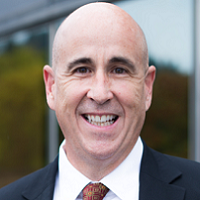 By Jim Foote, Co-Founder and CEO, First Ascent Biomedical
By Jim Foote, Co-Founder and CEO, First Ascent Biomedical
LinkedIn: Jim Foote
LinkedIn: First Ascent Biomedical
Cancer treatment stands at a critical crossroads. Despite remarkable advances in medical technology and our understanding of tumor biology, the sobering reality remains that in 2025, one in three cancer patients will die. This persistent gap between medical capability and patient need represents one of the most pressing challenges in modern healthcare—and one of the greatest opportunities for transformation. As cancer becomes the #1 killer of men and the #2 killer of women under 50, with two million new cancer diagnoses and more than 600,000 deaths projected for 2025, oncologists are racing to find tools that can transform biological complexity into clinical clarity. The answer lies not in incremental improvements to existing protocols, but in fundamentally reimagining how we approach cancer care through AI-driven precision medicine.
The Persistent Challenge in Cancer Personalization
The core issue in oncology is clear: cancer treatment typically relies on generalized protocols known as the Standard of Care, rather than being tailored to the unique needs of each individual patient. Despite 25 years of advances in diagnostics and data collection, treatment selection continues to follow broad protocols that may not align with the unique biological characteristics of individual tumors.
This one-size-fits-all approach leaves millions of patients cycling through treatments that offer limited benefit while precious time passes. For oncologists, the pressure to make life-altering decisions with incomplete information creates an untenable situation where clinical intuition must bridge the gap between available data and optimal care when the standard of care fails.
The impact reaches far beyond individual patients. Healthcare systems face a significant financial strain from ineffective treatments, with two-thirds of cancer care costs spent on the final year of life for just one-third of patients. Most critically, patients with relapsed or refractory cancers, those who have exhausted standard treatment options, face diminishing hope and fewer evidence-based options. Families endure the emotional and financial toll of prolonged illness.
The Strategic Opportunity: How Biotechnology Is Redefining Oncology
Artificial intelligence, advanced cancer cell biology, automation, and robotics have converged to create an unprecedented opportunity in oncology. By integrating real-time functional testing with genomic and transcriptomic profiling, AI-driven platforms can now identify which drugs work best for an individual’s tumor within days rather than months.
This approach, known as Functional Precision Medicine (FPM), represents a paradigm shift from reactive to predictive cancer care. Unlike genomic profiling alone, which cannot always predict tumor response to therapy, functional drug testing exposes living cancer cells to FDA-approved drugs, revealing drug sensitivities before treatment begins.
The clinical implications are transformative. In peer-reviewed studies, FPM approaches have improved patient outcomes by up to 83% compared to standard care, demonstrating the profound impact of personalized treatment selection. This fusion of functional and genomic insights, powered by AI analytics, bridges the gap between biological complexity and clinical decision-making.
Three Pillars of AI-Enhanced Precision Oncology
- Advanced Diagnostic Integration: AI is revolutionizing cancer detection across multiple modalities. AI-assisted mammography now improves breast cancer detection rates by 17.6% while reducing false positives by 20%, helping avoid unnecessary biopsies. In clinical settings, AI detects 20-40% of interval breast cancers that radiologists initially miss with mammograms, representing a significant advancement in early detection capabilities.
- Intelligent Treatment Matching: Predictive algorithms are transforming patient-trial matching with remarkable precision, achieving 90.5% sensitivity and 99.3% specificity in identifying eligible candidates. This computational approach ensures that patients gain access to potentially life-saving experimental therapies while optimizing trial enrollment efficiency.
- Real-Time Decision Support: AI platforms now analyze patient-derived tumor cells against hundreds of FDA-approved drugs simultaneously, generating ranked treatment recommendations in an average of 10 days. This capability enables oncologists to make informed decisions based on actual tumor response data rather than statistical probabilities alone.
The Future Outlook: From Validation to Integration
The path forward requires strategic collaboration across healthcare systems, academic research, and industry partners to ensure data interoperability, clinically validated AI implementation, and equitable access. With 95% of oncologists recognizing AI’s diagnostic value and nearly 90% acknowledging its potential for assistance in treatment selection, the clinical community is demonstrably ready to transition from validation to full integration.
The ultimate vision extends beyond individual patient benefits. AI-driven precision medicine promises to reduce healthcare costs by eliminating ineffective treatments, accelerating drug development through better patient stratification, and democratizing access to cutting-edge cancer care regardless of geographic location or institutional resources.
As these platforms become more accessible and cost-efficient, the fundamental nature of oncology practice will evolve. Rather than replacing clinical expertise, AI will amplify physician capabilities, providing the right data at the right time to personalize treatment with unprecedented confidence, moving cancer treatment from try and hope to test and treat.
The future of cancer care is therapy validation and precisely treating it. For the millions facing cancer diagnoses, these advances represent more than technological progress; they offer a clear pathway to better outcomes, renewed hope, and the promise that precision truly can triumph over uncertainty.
